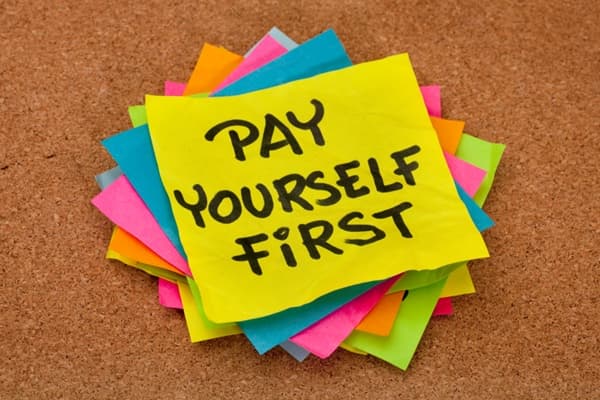- Home
- Making Ends Meet
- Post-Divorce Saving Strategy
Developing a Post-Divorce Saving Strategy
Budgeting and following a saving strategy might not be a big priority for you right now, especially if you're still reeling from the divorce. But the reality is that you are now solely responsible for protecting your financial future. And having some money saved back will give you a safety net for those unexpected expenses that often come up. The following article offers some easy tips to help you get started.
Saving Money When You Are Single
Just as marriage changes your way of life to some extent, the same thing can be expected with the dissolution of your marriage. Changing your perspective from being part of a couple to living as a single person will take some adjustment. However, there are some changes you probably need to make very soon after your divorce.
How you manage your finances (especially your savings) will play a very important role in your future, leading the way to financial security or years of struggle. Depending on your situation, you may have plenty of resources to work with in terms of savings. Or like many women, you may find yourself painfully short of money at a time when you need it the most.
Regardless of where you are today, you must establish a saving strategy to make sure you have what you need in the years to come. Here are a few tips to help you get started.
Pay yourself first

This is one of the most important saving habits a person can develop. It is often easier said than done, especially when you are dealing with a limited amount of money to cover all your expenses. Nevertheless, whether it is $5 or $50, putting a set amount aside in a savings account each time you get paid will eventually build a cushion that can be used in an emergency or for other financial goals.
Educate yourself about finances
In most households there is usually one spouse who is better at budgeting and bill paying. If you were that person, you probably already have a good grip on how to run a household. If you weren't the one responsible for the family finances, you have to take the time to learn how to create and follow a budget as well as other important financial lessons.
Develop a saving strategy
You don't have to be a financial expert to develop a plan for building your nest egg. You do however need to understand the basics. Find out what retirement plans are offered by your employer to ensure you are not missing out on a prime opportunity to save toward retirement. Read up on high interest savings accounts, CDs, IRAs and other popular methods of saving.
Knowing what strategies are out there will help you make an informed decision on where to place your money and how to get the most return on your investment. All of these things will help build the background for your financial independence.
Seek professional advice
For some people, the guidance of a trustworthy financial advisor can make all the difference between struggling with money management and securing your financial future. If you have not made financial decisions in the past, it can be quite intimidating. Make sure you do your research and find a competent and legitimate advisor before entrusting them with your personal finances.
Saving money is a huge part of managing your personal finances. You should not only have money set aside for emergencies but also to take advantage of growth opportunities over time. To do this, you must start today and learn how savings can change your future for the better.
Article by T. Wagner, an independent columnist from DepositAccounts.com, a bank account comparison site allowing you to evaluate different checking and savings accounts, CD rates, money market accounts, and more.
The following articles can help you out as you begin to develop your own saving strategy:
